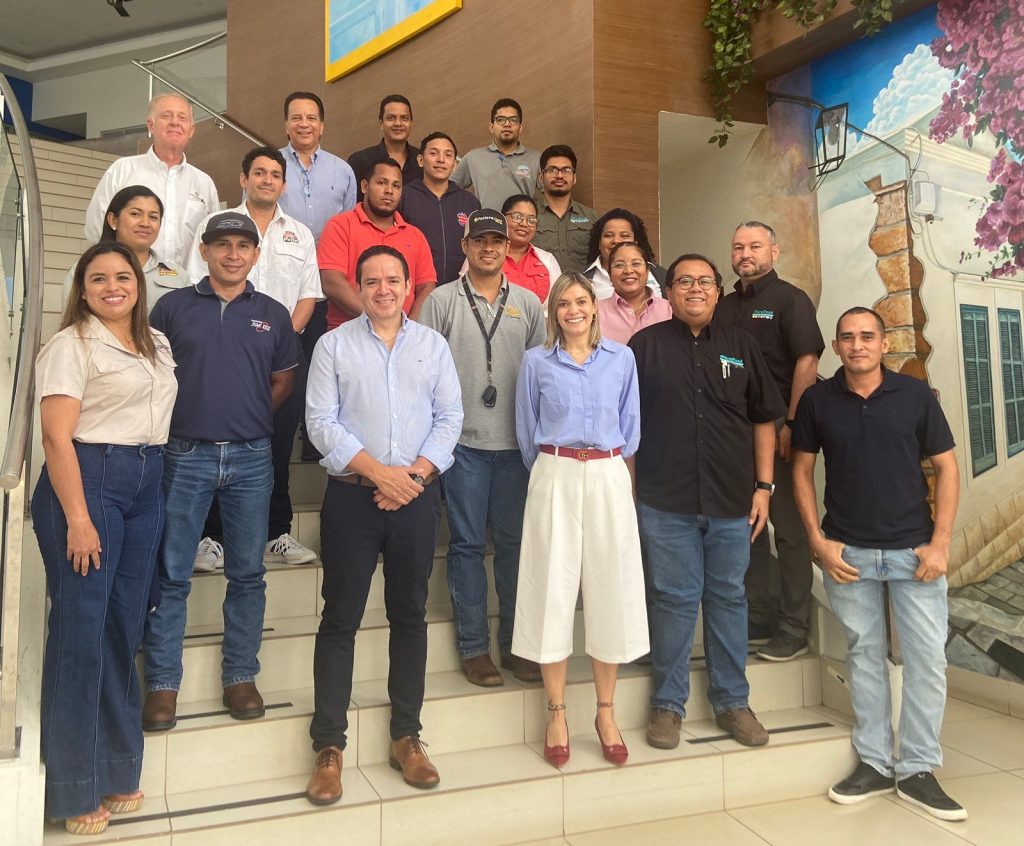To strengthen and increase U.S. corn and corn co-product exports to Panama, the U.S. Grains Council (USGC) recently engaged with Coopagro, an association of 29 aquaculture, pork and poultry producers in the country, to conduct a feed pelleting training program for its members.
“Coopagro requested this training to enhance the efficiency of its pelleting operations and providing a great opportunity for the Council to gain a deeper understanding of the needs and use applications of different grains among Panamanian producers,” said Angelica Rios, USGC marketing specialist for Latin America (LTA).
Coopagro serves its membership by consolidating supply and production chains to offer a reliable and competitively priced source of animal feed. The organization accounts for nearly 20 percent of Panama’s annual corn imports, purchasing 120,000 metric tons each year, making it a valuable partner for the Council and the U.S. agricultural industry.
Rios was joined by USGC Feed Grains Consultant Alejandro Gonzalez and Auburn University Poultry Science Extension Specialist and Associate Professor Wilmer Pacheco for the program that attracted 20 stakeholders from Panamanian agricultural sectors.
The training began with an overview of the feed pelleting process, including strategies to improve mash conditioning, equipment operation, pellet quality and how to formulate diets depending on species. The program continued with several visits to local farms to observe how producers are using and implementing the pelleting process to enhance operational efficiency.
After the program, Rios and USGC Regional Director for LTA Marri Tejada met with Javier Ho, dry bulk leader at the Panama Canal Authority, to maintain a mutually beneficially relationship with the vitally important trade conduit.
“The U.S. and Panama enjoy a healthy trade partnership, and collaborating with organizations like Coopagro will be essential to increase U.S. corn exports to the country, especially as consumer demand for protein continues to rise,” Rios said. “This training program will result in higher-quality animal feed that benefits the livelihood of Panamanian producers and consumers and promotes livestock health, and simultaneously expands a market for U.S. growers.”
Learn more about the Council’s work in Panama here.
About The U.S. Grains Council
The U.S. Grains Council develops export markets for U.S. barley, corn, sorghum and related products including distiller’s dried grains with solubles (DDGS) and ethanol. With full-time presence in 28 locations, the Council operates programs in more than 50 countries and the European Union. The Council believes exports are vital to global economic development and to U.S. agriculture’s profitability. Detailed information about the Council and its programs is online at www.grains.org.

